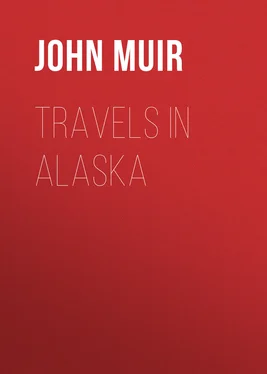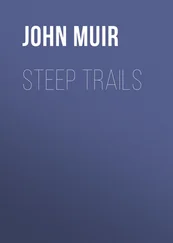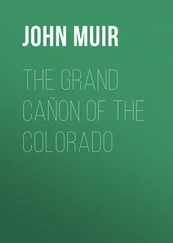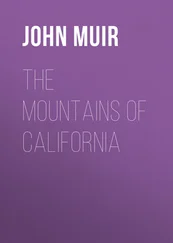John Muir - Travels in Alaska
Здесь есть возможность читать онлайн «John Muir - Travels in Alaska» — ознакомительный отрывок электронной книги совершенно бесплатно, а после прочтения отрывка купить полную версию. В некоторых случаях можно слушать аудио, скачать через торрент в формате fb2 и присутствует краткое содержание. Жанр: Путешествия и география, История, foreign_edu, foreign_antique, foreign_prose, на английском языке. Описание произведения, (предисловие) а так же отзывы посетителей доступны на портале библиотеки ЛибКат.
- Название:Travels in Alaska
- Автор:
- Жанр:
- Год:неизвестен
- ISBN:нет данных
- Рейтинг книги:4 / 5. Голосов: 1
-
Избранное:Добавить в избранное
- Отзывы:
-
Ваша оценка:
- 80
- 1
- 2
- 3
- 4
- 5
Travels in Alaska: краткое содержание, описание и аннотация
Предлагаем к чтению аннотацию, описание, краткое содержание или предисловие (зависит от того, что написал сам автор книги «Travels in Alaska»). Если вы не нашли необходимую информацию о книге — напишите в комментариях, мы постараемся отыскать её.
Travels in Alaska — читать онлайн ознакомительный отрывок
Ниже представлен текст книги, разбитый по страницам. Система сохранения места последней прочитанной страницы, позволяет с удобством читать онлайн бесплатно книгу «Travels in Alaska», без необходимости каждый раз заново искать на чём Вы остановились. Поставьте закладку, и сможете в любой момент перейти на страницу, на которой закончили чтение.
Интервал:
Закладка:
Mr. Young was perhaps a dozen or two yards behind me, but out of sight. I afterwards reproached myself for not stopping and lending him a steadying hand, and showing him the slight footsteps I had made by kicking out little blocks of the crumbling surface, instead of simply warning him to be careful. Only a few seconds after giving this warning, I was startled by a scream for help, and hurrying back, found the missionary face downward, his arms outstretched, clutching little crumbling knobs on the brink of a gully that plunges down a thousand feet or more to a small residual glacier. I managed to get below him, touched one of his feet, and tried to encourage him by saying, “I am below you. You are in no danger. You can't slip past me and I will soon get you out of this.”
He then told me that both of his arms were dislocated. It was almost impossible to find available footholds on the treacherous rock, and I was at my wits' end to know how to get him rolled or dragged to a place where I could get about him, find out how much he was hurt, and a way back down the mountain. After narrowly scanning the cliff and making footholds, I managed to roll and lift him a few yards to a place where the slope was less steep, and there I attempted to set his arms. I found, however, that this was impossible in such a place. I therefore tied his arms to his sides with my suspenders and necktie, to prevent as much as possible inflammation from movement. I then left him, telling him to lie still, that I would be back in a few minutes, and that he was now safe from slipping. I hastily examined the ground and saw no way of getting him down except by the steep glacier gully. After scrambling to an outstanding point that commands a view of it from top to bottom, to make sure that it was not interrupted by sheer precipices, I concluded that with great care and the digging of slight footholds he could be slid down to the glacier, where I could lay him on his back and perhaps be able to set his arms. Accordingly, I cheered him up, telling him I had found a way, but that it would require lots of time and patience. Digging a footstep in the sand or crumbling rock five or six feet beneath him, I reached up, took hold of him by one of his feet, and gently slid him down on his back, placed his heels in the step, then descended another five or six feet, dug heel notches, and slid him down to them. Thus the whole distance was made by a succession of narrow steps at very short intervals, and the glacier was reached perhaps about midnight. Here I took off one of my boots, tied a handkerchief around his wrist for a good hold, placed my heel in his arm pit, and succeeded in getting one of his arms into place, but my utmost strength was insufficient to reduce the dislocation of the other. I therefore bound it closely to his side, and asked him if in his exhausted and trembling condition he was still able to walk.
“Yes,” he bravely replied.
So, with a steadying arm around him and many stops for rest, I marched him slowly down in the starlight on the comparatively smooth, unassured surface of the little glacier to the terminal moraine, a distance of perhaps a mile, crossed the moraine, bathed his head at one of the outlet streams, and after many rests reached a dry place and made a brush fire. I then went ahead looking for an open way through the bushes to where larger wood could be had, made a good lasting fire of resiny silver-fir roots, and a leafy bed beside it. I now told him I would run down the mountain, hasten back with help from the boat, and carry him down in comfort. But he would not hear of my leaving him.
“No, no,” he said, “I can walk down. Don't leave me.”
I reminded him of the roughness of the way, his nerve-shaken condition, and assured him I would not be gone long. But he insisted on trying, saying on no account whatever must I leave him. I therefore concluded to try to get him to the ship by short walks from one fire and resting-place to another. While he was resting I went ahead, looking for the best way through the brush and rocks, then returning, got him on his feet and made him lean on my shoulder while I steadied him to prevent his falling. This slow, staggering struggle from fire to fire lasted until long after sunrise. When at last we reached the ship and stood at the foot of the narrow single plank without side rails that reached from the bank to the deck at a considerable angle, I briefly explained to Mr. Young's companions, who stood looking down at us, that he had been hurt in an accident, and requested one of them to assist me in getting him aboard. But strange to say, instead of coming down to help, they made haste to reproach him for having gone on a “wild-goose chase” with Muir.
“These foolish adventures are well enough for Mr. Muir,” they said, “but you, Mr. Young, have a work to do; you have a family; you have a church, and you have no right to risk your life on treacherous peaks and precipices.”
The captain, Nat Lane, son of Senator Joseph Lane, had been swearing in angry impatience for being compelled to make so late a start and thus encounter a dangerous wind in a narrow gorge, and was threatening to put the missionaries ashore to seek their lost companion, while he went on down the river about his business. But when he heard my call for help, he hastened forward, and elbowed the divines away from the end of the gangplank, shouting in angry irreverence, “Oh, blank! This is no time for preaching! Don't you see the man is hurt?”
He ran down to our help, and while I steadied my trembling companion from behind, the captain kindly led him up the plank into the saloon, and made him drink a large glass of brandy. Then, with a man holding down his shoulders, we succeeded in getting the bone into its socket, notwithstanding the inflammation and contraction of the muscles and ligaments. Mr. Young was then put to bed, and he slept all the way back to Wrangell.
In his mission lectures in the East, Mr. Young oftentimes told this story. I made no record of it in my notebook and never intended to write a word about it; but after a miserable, sensational caricature of the story had appeared in a respectable magazine, I thought it but fair to my brave companion that it should be told just as it happened.
Chapter V
A Cruise in the Cassiar
Shortly after our return to Wrangell the missionaries planned a grand mission excursion up the coast of the mainland to the Chilcat country, which I gladly joined, together with Mr. Vanderbilt, his wife, and a friend from Oregon. The river steamer Cassiar was chartered, and we had her all to ourselves, ship and officers at our command to sail and stop where and when we would, and of course everybody felt important and hopeful. The main object of the missionaries was to ascertain the spiritual wants of the warlike Chilcat tribe, with a view to the establishment of a church and school in their principal village; the merchant and his party were bent on business and scenery; while my mind was on the mountains, glaciers, and forests.
This was toward the end of July, in the very brightest and best of Alaska summer weather, when the icy mountains towering in the pearly sky were displayed in all their glory, and the islands at their feet seemed to float and drowse on the shining mirror waters.
After we had passed through the Wrangell Narrows, the mountains of the mainland came in full view, gloriously arrayed in snow and ice, some of the largest and most river-like of the glaciers flowing through wide, high-walled valleys like Yosemite, their sources far back and concealed, others in plain sight, from their highest fountains to the level of the sea.
Cares of every kind were quickly forgotten, and though the Cassiar engines soon began to wheeze and sigh with doleful solemnity, suggesting coming trouble, we were too happy to mind them. Every face glowed with natural love of wild beauty. The islands were seen in long perspective, their forests dark green in the foreground, with varying tones of blue growing more and more tender in the distance; bays full of hazy shadows, graduating into open, silvery fields of light, and lofty headlands with fine arching insteps dipping their feet in the shining water. But every eye was turned to the mountains. Forgotten now were the Chilcats and missions while the word of God was being read in these majestic hieroglyphics blazoned along the sky. The earnest, childish wonderment with which this glorious page of Nature's Bible was contemplated was delightful to see. All evinced eager desire to learn.
Читать дальшеИнтервал:
Закладка:
Похожие книги на «Travels in Alaska»
Представляем Вашему вниманию похожие книги на «Travels in Alaska» списком для выбора. Мы отобрали схожую по названию и смыслу литературу в надежде предоставить читателям больше вариантов отыскать новые, интересные, ещё непрочитанные произведения.
Обсуждение, отзывы о книге «Travels in Alaska» и просто собственные мнения читателей. Оставьте ваши комментарии, напишите, что Вы думаете о произведении, его смысле или главных героях. Укажите что конкретно понравилось, а что нет, и почему Вы так считаете.












